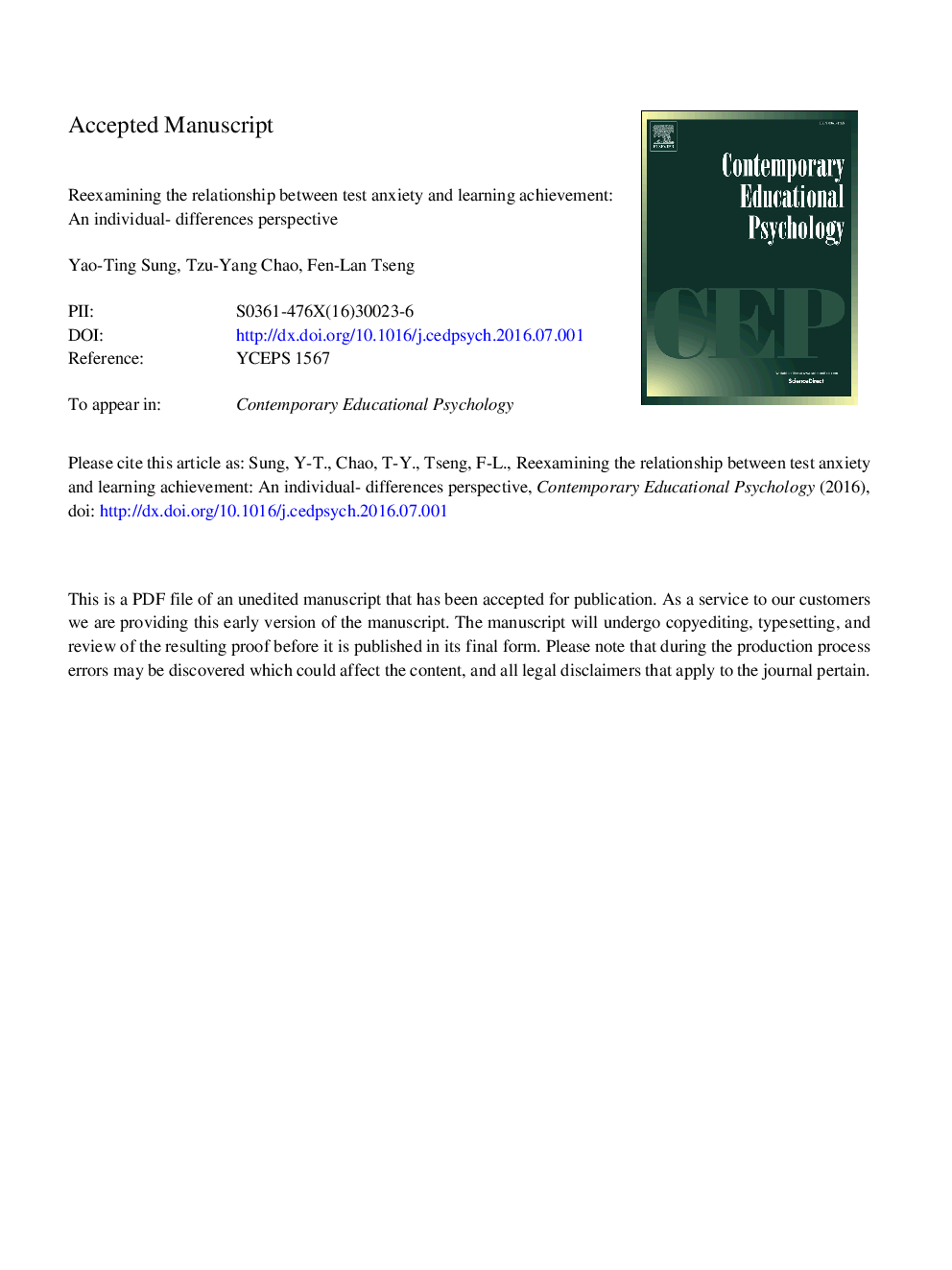| Article ID | Journal | Published Year | Pages | File Type |
|---|---|---|---|---|
| 6839817 | Contemporary Educational Psychology | 2016 | 55 Pages |
Abstract
Previous studies have indicated that there is a negative correlation between test anxiety and performance. However, how the type of anxiety/stress, the examinees' personal characteristics, and the method of assessment affect this relationship remained uninvestigated. Thus, the present study examined the relationship between test anxiety and learning achievement among secondary-school students, as well as tested two anxiety-performance relationship models. The analysis of test-anxiety scores and the standardized entrance examination scores of 1931 Taiwanese ninth-graders revealed an overall coefficient of 0.18 for the correlation between anxiety and achievement. Students in the lower-achievement group (i.e., ranked from percentile 1 to percentile 50, PR1-50) exhibited a positive correlation between anxiety and achievement (râ=â0.22), which is consistent with the motivational enhancement model, whereas students in the higher-achievement group (PR51-99) exhibited a negative correlation (râ=ââ0.16), which corresponds to the cognitive interference model. This study also found that although girls report experiencing higher test anxiety than boys, the correlations between test anxiety and achievement are the same among boys and girls. Because both the motivational enhancement and cognitive interference models could not completely explain the results, we proposed a “stress-of-uncertainty” model to explain the inverted-U shape of the anxiety for students.
Keywords
Related Topics
Social Sciences and Humanities
Psychology
Applied Psychology
Authors
Yao-Ting Sung, Tzu-Yang Chao, Fen-Lan Tseng,
